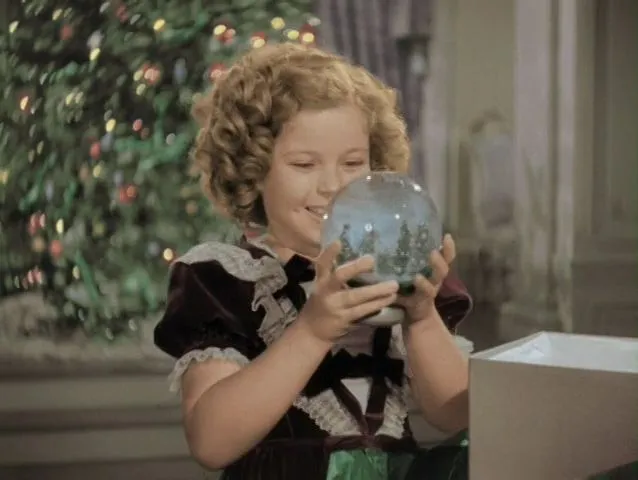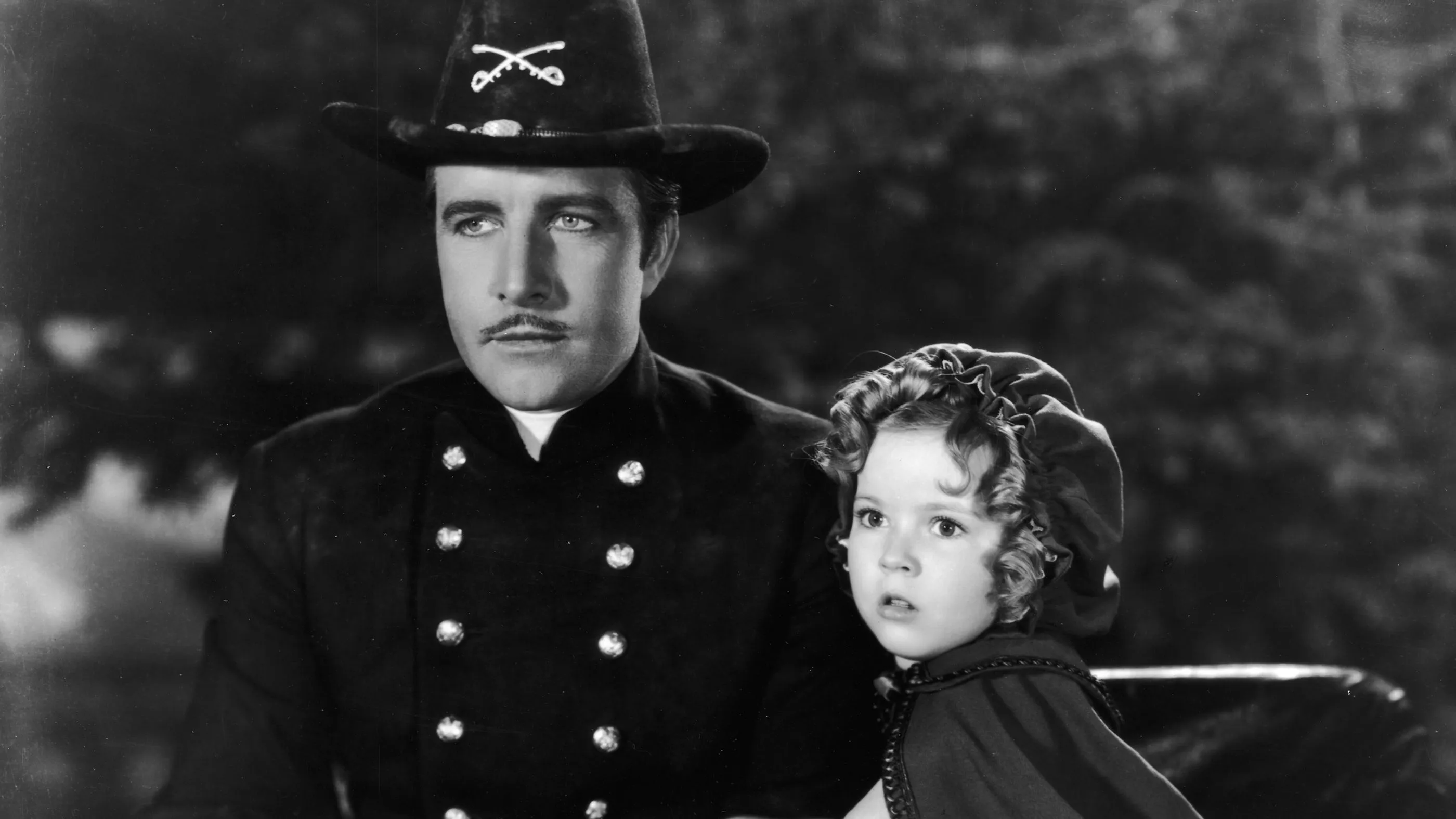Shirley Temple, the effervescent child star of the 1930s, brought her signature sunshine and curls to the 1935 film "The Littlest Rebel." The movie, set against the backdrop of the American Civil War, remains a controversial piece of Hollywood history, but Temple's undeniable on-screen charisma continues to hold a certain charm.

In "The Littlest Rebel," Temple plays Virgie Cary, a precocious Southern belle living a privileged life on a sprawling plantation with her loving parents (John Boles and Karen Morley).
The idyllic existence is shattered by the outbreak of the Civil War. Virgie's father, a Confederate officer, marches off to fight, leaving the young girl to grapple with the harsh realities of war.

The film portrays the war primarily through Virgie's innocent eyes. Battles are shown from a distance, with booming cannons and smoke on the horizon, shielding viewers from the true brutality. This romanticized view of war is a major criticism of the film. However, it also reflects the way the war was often presented to children at the time.
Despite the sanitized war scenes, "The Littlest Rebel" does touch on the human cost of conflict. The Cary family struggles financially, their once-grand plantation falling into disrepair. The film also features African American characters, a rarity for the time.
Bill Robinson, the legendary tap dancer, portrays Uncle Billy, a loyal family servant who provides a source of comfort and stability for Virgie. However, the portrayal of race relations in the film is simplistic, reinforcing stereotypes of the "happy slave" trope.

The heart of "The Littlest Rebel" lies in Temple's performance. At the tender age of six, she delivers a captivating portrayal of Virgie's resilience and unwavering optimism.
Her signature tap-dancing routine with Bill Robinson, a highlight of the film, showcases her natural talent and infectious enthusiasm. Temple's now-iconic dimples and ringlet curls add to the character's sweetness, making it hard not to be charmed by Virgie's determination.

The film takes a dramatic turn when Virgie's father, wounded in battle, secretly returns home. He is captured by Union soldiers, setting the stage for a daring escape attempt orchestrated by Virgie and Uncle Billy.
This sequence, while suspenseful, reinforces the sanitized portrayal of the war. The Union soldiers are presented as almost cartoonishly villainous, further simplifying the complexities of the conflict.

The climax of the film sees Virgie and Uncle Billy travel all the way to Washington D.C. to plead with President Abraham Lincoln (played by Frank McGlynn Sr.) for her father's life. This scene, while undeniably sentimental, demonstrates Temple's ability to tug at the heartstrings. Her wide-eyed innocence and heartfelt pleas are difficult to resist.
"The Littlest Rebel" was a box-office smash, further solidifying Temple's status as America's sweetheart. However, the film has been criticized for its historical inaccuracies and its avoidance of the war's darker aspects. Modern audiences may find the portrayal of the Civil War simplistic and even insensitive.

Despite its flaws, "The Littlest Rebel" remains a fascinating time capsule of Hollywood filmmaking during a specific era. The film reflects the desire to escape the harsh realities of the Depression with heartwarming stories and adorable child stars.
Temple's undeniable talent and charisma shine through, even as the film itself grapples with a complex historical backdrop.

"The Littlest Rebel" is not a film to be taken at face value. It's a product of its time, and a critical viewing is necessary to understand its historical context.
However, for those willing to look beyond the romanticized war scenes, there's a certain charm to be found in Shirley Temple's captivating performance and the film's overall message of resilience and hope.















